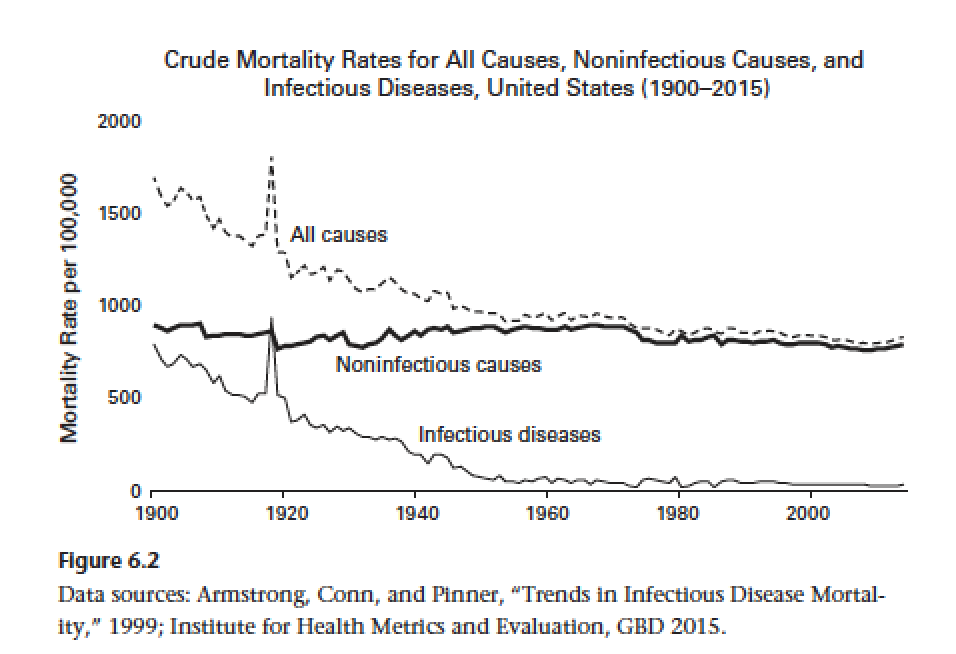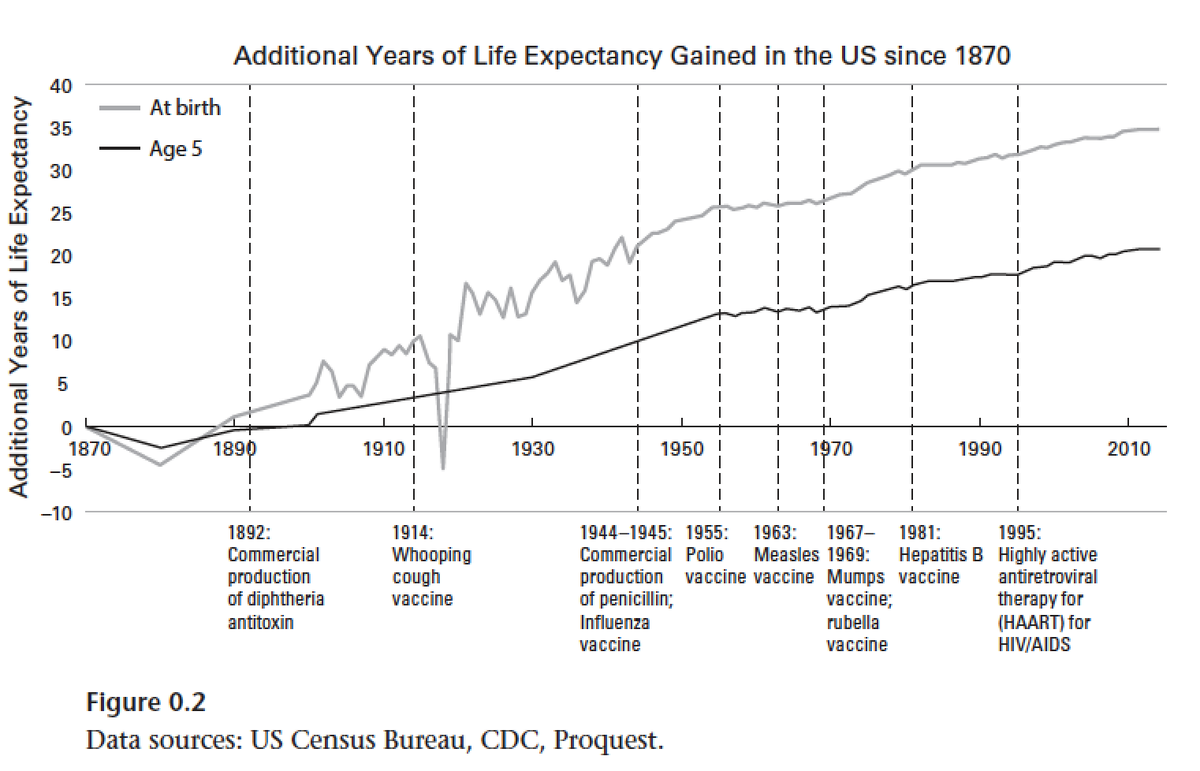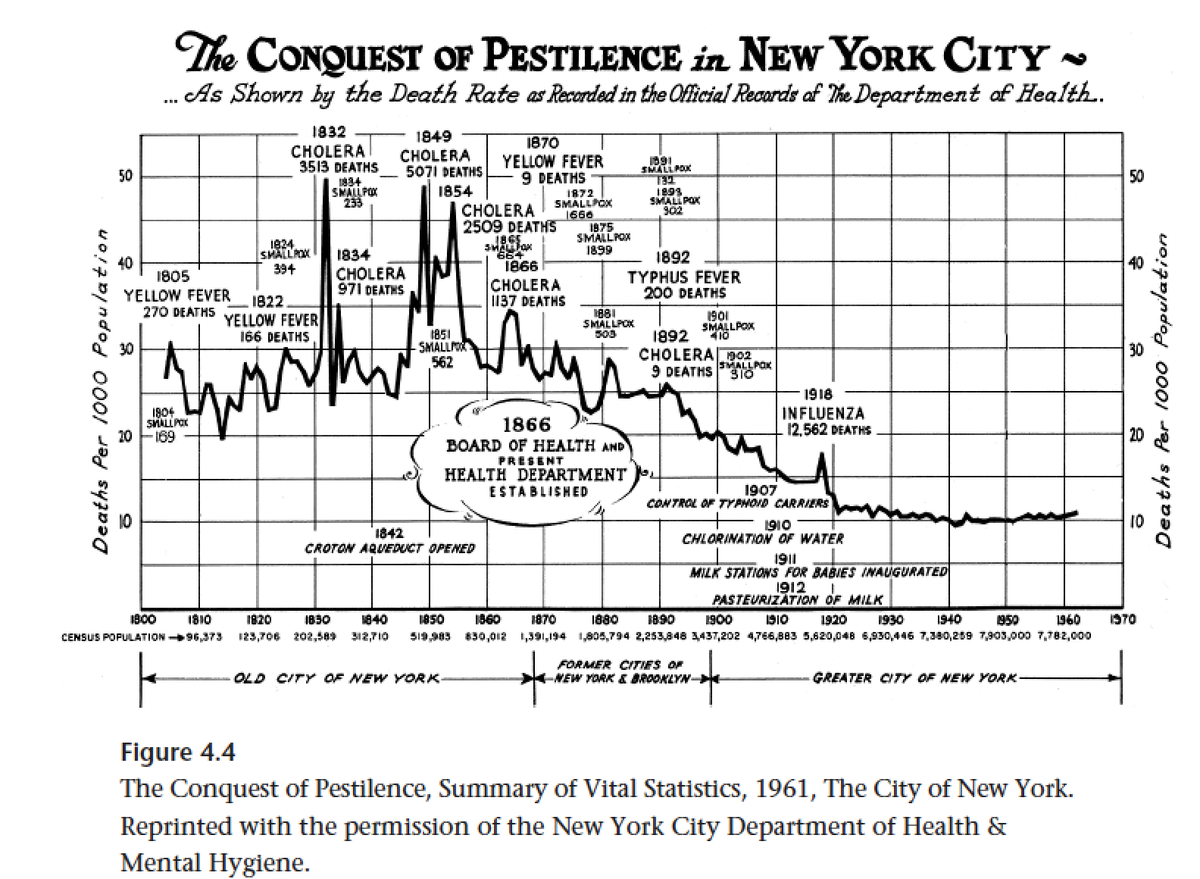I am a fan of @MaxCRoser & @OurWorldInData, but this thread is misleading (at best)
Most of decline in mortality against infectious diseases in now wealthy nations occurred before widespread availability of antibiotics & development of most vaccines 1/ https://twitter.com/MaxCRoser/status/1285249132047802369?s=20">https://twitter.com/MaxCRoser...
Most of decline in mortality against infectious diseases in now wealthy nations occurred before widespread availability of antibiotics & development of most vaccines 1/ https://twitter.com/MaxCRoser/status/1285249132047802369?s=20">https://twitter.com/MaxCRoser...
Our history does not show that we lost terribly to infectious diseases before most vaccines were developed
More importantly, we don& #39;t need to lose terribly to #COVID19 unless & until science delivers us a vaccine
It& #39;s important policymakers & public understand that 2/
More importantly, we don& #39;t need to lose terribly to #COVID19 unless & until science delivers us a vaccine
It& #39;s important policymakers & public understand that 2/
Let& #39;s take the US for example.
Most vaccines & antibiotics are not developed until after WWII, yet the decline in ID deaths starts decades earlier 3/
Most vaccines & antibiotics are not developed until after WWII, yet the decline in ID deaths starts decades earlier 3/
Nearly 60 percent of the gains in life expectancy that the US has experienced since 1870 occurred before most treatments and vaccines became available too 4/
What made the biggest difference? Public health and broader societal improvements, not medical technologies
This figure shows NYC& #39;s progress against infectious diseases 5/
This figure shows NYC& #39;s progress against infectious diseases 5/
What mattered?
@Cutler_econ and Grant Miller estimate that 43 percent of the decline in mortality in US cities between 1900 and 1936 can be attributed to water filtration and chlorination 6/ https://link.springer.com/article/10.1353/dem.2005.0002">https://link.springer.com/article/1...
@Cutler_econ and Grant Miller estimate that 43 percent of the decline in mortality in US cities between 1900 and 1936 can be attributed to water filtration and chlorination 6/ https://link.springer.com/article/10.1353/dem.2005.0002">https://link.springer.com/article/1...
Tuberculosis was the leading cause of death (roughly
one-quarter of all deaths) in industrialized nations in the nineteenth century, but TB mortality declines in those nations began ahead of advent of effective treatments 7/
one-quarter of all deaths) in industrialized nations in the nineteenth century, but TB mortality declines in those nations began ahead of advent of effective treatments 7/
What drove progress against IDs in this era?
Changing social norms around hygiene and child care, better understanding of causes of disease, housing laws & low-cost PH innovations like pasteurization, and development of municipal public health institutions all mattered 8/
Changing social norms around hygiene and child care, better understanding of causes of disease, housing laws & low-cost PH innovations like pasteurization, and development of municipal public health institutions all mattered 8/
What about after WWII & in non-wealthy nations?
The demographer Samuel Preston estimates vaccines and antibiotics drove about half of the declines in death rates in LMICs through the late 1970s
Low-cost public health measures still mattered. A lot
9/ https://press.uchicago.edu/ucp/books/book/chicago/P/bo25158440.html">https://press.uchicago.edu/ucp/books...
The demographer Samuel Preston estimates vaccines and antibiotics drove about half of the declines in death rates in LMICs through the late 1970s
Low-cost public health measures still mattered. A lot
9/ https://press.uchicago.edu/ucp/books/book/chicago/P/bo25158440.html">https://press.uchicago.edu/ucp/books...
It& #39;s a relatively recent development that our progress against most infectious diseases have become so dependent on medical tech, esp. vaccines
Those vaccines have helped achieve welcome, well-distributed, sustained progress against plagues and pestilence globally
BUT...
10/
Those vaccines have helped achieve welcome, well-distributed, sustained progress against plagues and pestilence globally
BUT...
10/
Over-dependence on medical technology & underinvestment in public health has made us especially vulnerable to novel infectious diseases for which there is no treatment & no pre-existing immunity 11/ https://www.theatlantic.com/ideas/archive/2020/02/coronavirus-spreading-because-humans-are-healthier/606448/">https://www.theatlantic.com/ideas/arc...
. @MaxCRoser & #39;s post rightly acknowledges other interventions besides vaccines have mattered
But his post leaves out the degree to which basic public health has mattered & the role they played in dramatic reductions in infectious diseases achieved globally 12/
But his post leaves out the degree to which basic public health has mattered & the role they played in dramatic reductions in infectious diseases achieved globally 12/
Want to know more about this history? I shamelessly recommend this book on history of decline of infectious diseases & how its reshaped world
But frankly my concern is with the present & #COVID19
13/ https://www.goodreads.com/book/show/39644160-plagues-and-the-paradox-of-progress">https://www.goodreads.com/book/show...
But frankly my concern is with the present & #COVID19
13/ https://www.goodreads.com/book/show/39644160-plagues-and-the-paradox-of-progress">https://www.goodreads.com/book/show...
Countries have made sustained (so far), dramatic progress against #COVID19 with basic shoe leather public health, good leadership, and clear, science-based communication 14/

 Read on Twitter
Read on Twitter









